Events & Media
Events
Coming soon!
Media
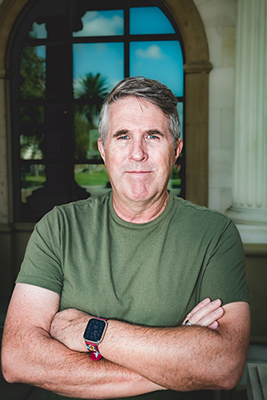
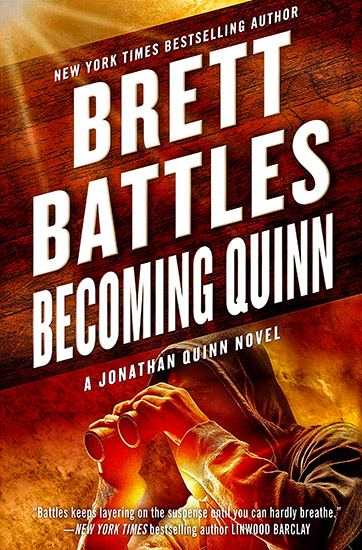
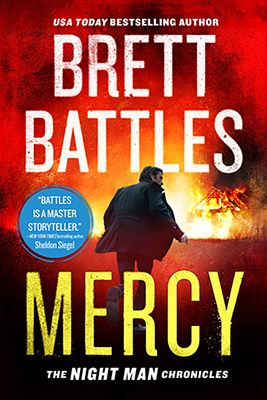
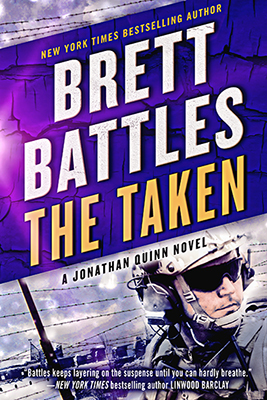
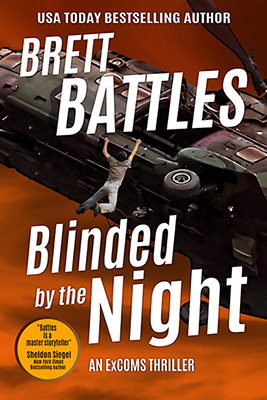
Bio
Brett was born and raised in southern California. His parents, avid readers, instilled the love of books in him early on, and there were many days his mom would kick him out of the house in the afternoon just so he would get a little sunshine.
He is the New York Times bestselling author of over forty novels, including the Jonathan Quinn series, the Project Eden series, and the time bending Rewinder trilogy. His debut novel, The Cleaner (The Jonathan Quinn Thrillers #1), was nominated for the 2008 Barry Award for Best Thriller, and the 2008 Shamus Award for Best First Novel. His second novel, The Deceived, won the 2009 Barry Award for Best Thriller. He received an additional Barry Award nomination for the fourth in his Quinn series, The Silenced.
Though he still makes California his home, he has traveled extensively to such destinations as Ho Chi Minh City, Berlin, Bangkok, Angkor Wat, Singapore, Jakarta, London, Paris, and Rome, all of which play parts in his current and upcoming novels.
Authors who have influenced him over the years include, but aren’t limited to: Isaac Asimov, Robert Heinlein, Alistair MacLean, Robert Ludlum, Stephen King, Graham Greene, Haruki Murakami, and Tim Hallinan.
He has three very cool kids—Ronan, Fiona, and Keira—who are all quickly becoming adults, which both excites and unnerves him. As for his neurotic, paranoid, cute Australian Shepherd Maggie, that’s more of a…developing relationship.
FAQ
Tell us about your influences, and how you came to be a writer?
I’m not sure exactly when the idea came to me that I wanted to be a writer, but I do remember that as early as fifth grade I would tell people that’s what I was going to do. (Little did I know how much work it would take and how long it would be before I fulfilled that dream.)
But I guess the inspiration to be a writer came from my love of reading. I can thank my parents for that. They are both huge readers. I can remember that every night after my dad came home from work, he would read for an hour or so, while the chaos of our household unfolded around him.
He was a huge sci-fi fan, so, naturally, I also became one. I read as much as I could by masters of the genre like Robert Heinlein, Arthur C. Clarke, and Isaac Asimov, and works by lesser known, but equally talented writers, like James White.
As I grew older, my tastes expanded. I didn’t completely quit reading sci-fi, but I did branch out. I think I read almost everything by Alistair MacLean, and Jack Higgins. And I also read a little book called Black Sunday by Thomas Harris several times. While science fiction stories were often thrillers, MacLean, Higgins, and Harris exposed me to a different kind of thriller—those set in our world, in our time.
Those weren’t the only authors who influenced me, but they were some of the most important. Still, it would be a mistake to leave out two other authors who have been huge effect on me. The first is Stephen King. The Stand is a book I’ve read over half a dozen times. And The Dark Tower series is simply brilliant.
The second is the late Graham Greene. There is a sadness to Greene’s work that grips me and pulls me in. And he does it all with a simple, sparse style that I admire. If you haven’t read Graham Greene before, you should give him a shot. Try The Quiet American, or The Heart of the Matter, or Our Man in Havana.
What is your process for writing a novel? Where do you get your inspiration?
Let’s tackle the inspiration question first. Simple answer: I get it anywhere and everywhere.
I could be walking down the street and see a couple arguing. I might wonder what the argument is about, but instead of eavesdropping, I’ll make something up. Maybe then other questions pop into my mind. Before I know it, I might have the idea for a book.
As for my process, I’ll take that idea, wherever it came from, and let it roll around in my mind for a while. Then, when I feel I’m ready, I’ll sit down and start writing. Often I’ll jot a few notes down first, maybe even create a bullet list of story points, but I’m not an outliner. Outlining kills the process for me. I enjoy the surprises I come across as I write.
Once I’m done with a draft, though, the most important part of writing a story begins for me. That’s rewriting. I love the rewrite. It’s when you make things come alive. When you cut unnecessary weight, and add in those sentences here and there that tie everything together. To me that’s the magic time.
How do you create the characters in your stories?
They kind of crop up when they’re needed. Sometimes they’ll only give me a peek into their personality when I first think them up, while other times they’ll come to me whole. What is most important to me is that no character, no matter how small, is just a cardboard cut out. The reader might not see much about the character, but I know there is more there to each of them.
Any advice for novelists just starting out?
Read: Books are your classrooms. Both the good ones and the bad. If you want to write in a particular genre, read that genre. Get a feel for the rhythm and the conventions. Not that you need to stick to the genre “rules”, but knowing them will allow you to break them with confidence. Then don’t be afraid to read outside the genre. Inspiration will come from everywhere.
Observe: Writers by nature are observers. Or, at least, I think the good ones are. We are interpreting the world to those who read our work. Sure, perhaps the world we are writing about is a made up one, but it is based on the world we live in everyday. Observe life. People watch. Eavesdrop on conversations in coffee shops. Don’t judge anything, just soak it in.
Experience: I don’t mean experience everything your characters will experience. I mean experience life. Travel. Go to a firing range. Hike up a mountain. Even jump out of a plane, if that’s something that interests you. Experience life. Then use those experiences to infuse your writing with real emotions and knowledge.
Finally, and most important, WRITE: Writers write. Simple as that. Write a little everyday if that’s all you can manage. It may be crap, but so what? Athletes practice all the time, improving with each drill. It’s the same thing with writing. You can’t get better unless you write.


